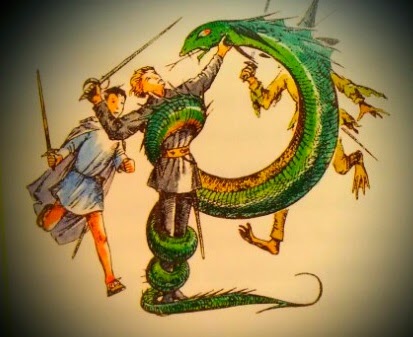Yesterday I preached what was probably the hardest sermon of my ministry career. I told my congregation that - while I am all for things like prayer and fasting - I think there are important reasons NOT to do so tomorrow, in attachment with election day. That was a shocking comment, and not one I made lightly. I attempted to explain it and would like to elaborate here.
The entire sermon was an attack on the ways we make an idol of politics. My community is a military community and we, of all people, in our closeness to the activities of the state, are tempted in the direction of political idolatry. I fear that I made too little of the anguish that my parishioners feel as they watch our country arrive at this new low point. Many of them have given their lives in service to our nation, and the heartache that is their current portion is significant and warranted. It was not my intention to make light of it.
But where that heartache means total despair, it reveals the presence of an idol. This is what I find so alarming about the way American Christians are calling for prayers and fastings in association with the voting process. On the very day when the impotence of our idol is being exposed, we still cling to it with our eyes tightly shut refusing to acknowledge the judgment and truth. We can pray and fast and hope it ain't so. But there it is. Our politics cannot save us. We are not going to vote ourselves out of this mess.
Politics is very limited institution, mostly negative in it's power of enforcement and authority. Law brings guilt, as the Apostle says, not life. To look for solutions or lifegiving power from a political swordbearer is to put our trust and hope in a prince, which Scripture famously warns against. It is like giving a farmer a hundred plowed acres, but only allowing him to use pesticide and a machete while expecting a bumper crop. These are tools of excision, not growth.
A call to fast and pray is usually regarded as a call to repent. Yet, at the top of the list of the sins we need to repent of nationally, are our political idolatry and our childish hunt for quick fixes to profound problems. Yet, paradoxically, connecting a call to pray and fast with a political election will mostly likely simply reinforce and perpetuate both of those sins!
Our nation is like a morbidly obese man who is seeking relief from a peddler of pills. The problem is that his own living throughout the decades of his life is what is killing him, and no pill will cure him of his own behavior.
Furthermore, I fear that calling for prayer and fasting on the day of elections is like that obese man calling his family to pray and fast on the day of his doctor's examination. But the damage has already been done. He ought to call them to pray and fast as he is driving to the grocery store, or as he is looking to join the membership of a gym, or pulling into the parkinglot of a buffet. On the morning of the doctor's exam, it is too late. Abraham told Dives, your time is up. You had your fun. The season of prayer has come to an end.
And this gets at the point. Civil Government is not intended to solve our problems. So stop praying that God would use it in that way. We need to repent of thinking that our social problems have political solutions.
If you want to pray and fast for our country on a level that matters and on the day that counts - pray and fast on the first day of Christian school year - and then on the first day of summer break. Pray and fast when your children are baptized or when a church building is under construction or when a neighbor moves in next to you, or a nursing home closes. Pray and fast during Advent, Lent, and Holy Week - and repent of your own sins with the same zeal that you bring to bear when discussing taxation policies, illegal immigration, or gun rights.
Further thoughts ...



















